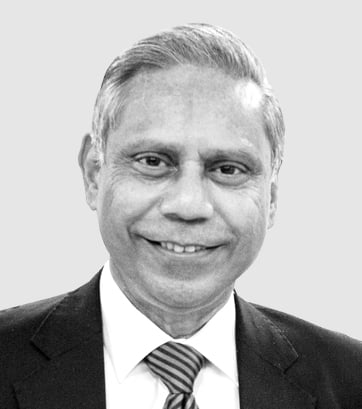Troika and the Afghanistan Crisis
Islamabad hosted the fourth round of the Troika Plus on November 11 and facilitated the acting Afghan Foreign Minister Amir Khan Muttaqi to be available to meet the delegates of the four countries of the Troika Plus format.
In a joint statement following the meeting, the delegates pressed the Taliban to provide access to education for women and girls of all ages. The Taliban have suspended secondary school education for girls in most provinces since their August 15 takeover of the country.
The statement also called upon the Taliban to “ensure unhindered humanitarian access, including by women aid workers, for the delivery of humanitarian assistance in Afghanistan to respond to the developing crisis.” In many Afghan provinces, local Taliban commanders are demanding that female aid workers always be accompanied by a close male relative, making their jobs difficult, and in some cases, impossible.
At the same time, the special representatives from the four countries that participated in the meeting agreed on the need for urgent humanitarian assistance and urged the United Nations to take the lead in coordinating help for the Afghan population. International aid agencies have sounded the alarm on Afghanistan’s situation, calling it a terrible humanitarian crisis.
The situation in Afghanistan is so grim that the World Food Program’s Executive Director, David Beasley, in a video message tweeted from Kabul airport, disclosed that over 22 million people are marching toward starvation. The situation has aggravated because the United States has frozen nearly $10 billion in Afghan government assets in U.S. banks until the Taliban fulfill their commitments to the international community. The United Nations too, has repeatedly warned that Afghanistan is on the brink of the world’s worst humanitarian crisis, with more than half the country facing “acute” food shortages and winter forcing millions to choose between migration and starvation.
The meeting in Islamabad is the fourth on Afghanistan by its neighbors since the Taliban takeover. The three others were held in Moscow, Tehran, and New Delhi. China and Pakistan stayed away from the New Delhi meeting, with China citing scheduling issues while Pakistan’s national security adviser abstained, calling India a “spoiler” in Afghanistan.
In October, senior U.S. officials engaged with the Taliban directly in Qatar’s capital, Doha, and more engagement is expected. Pakistan’s Foreign Minister, who hosted the meeting, opined that Afghanistan is “at the brink of (an) economic collapse” and the international community must urgently resume funding and provide humanitarian assistance.
Thomas West, the new U.S. special envoy for Afghanistan and Taliban Foreign Minister Amir Khan Muttaqi, also had separate engagements with relevant quarters to find a solution to the impending gloom. This was West’s first trip to the region since taking over from Zalmay Khalilzad, the long-serving diplomat who spearheaded talks that led to the U.S. withdrawal from Afghanistan earlier this year.
West, who was in Brussels earlier this week to brief NATO on U.S engagement with the Taliban, while talking to the media, stated that the Islamists have “very clearly” voiced their desire to see aid resumed, normalise international relations and achieve sanctions relief. He called for unity from allies on those issues, noting that Washington “can deliver none of these things on our own”.
On the other hand, while meeting with think tanks in Islamabad, Mr. Muttaqi was reassuring, as he shed light on the new developments in Afghanistan and also talked about the foreign policy of Afghanistan and specifically, relations with Pakistan. He said the developments in Afghanistan were peaceful due to the support of the people and, in the city of Kabul, not a single drop of blood was shed. He further said that with the group’s takeover, there was comprehensive peace throughout Afghanistan and that the refugees coming out of Afghanistan are economic refugees as is the case in other parts of the world as well. The new government of Afghanistan does not pursue a policy of revenge.
Talking about the Doha Agreement, he said that they have made it clear that the Taliban will not allow the territory of Afghanistan to be used against any country, including their immediate neighbours. There exists a problem internationally in defining certain words – one such word is terrorism. Muttaqi declared that Kabul is pursuing a balanced policy and does not want Afghanistan to be a ground of conflict for major powers and joint efforts can lead to stability. He reiterated that due to the unique placement of Afghanistan geographically, it can serve as a point of connectivity for the entire region; thus, it is exerting effort to have dialogue with CARs so that trade can be resumed between Pakistan and Central Asia which will benefit Afghanistan as well. He stressed that the reforms the international community wants the Taliban to adopt, they will incorporate them peacefully and not under duress.
Simultaneously, it is a quirk of fate that Pakistan, which was being viewed with suspicion by the Occident and accused of being a “Frenemy”, with the war in Afghanistan being over, is back at center stage. The Economist, in its October 9, 2021 Op-Ed titled ‘The West still needs Pakistan’ concludes that “(Pakistan) is too important—and dangerous—to ignore.”
The writer is the former Group Captain PAF and an author.
